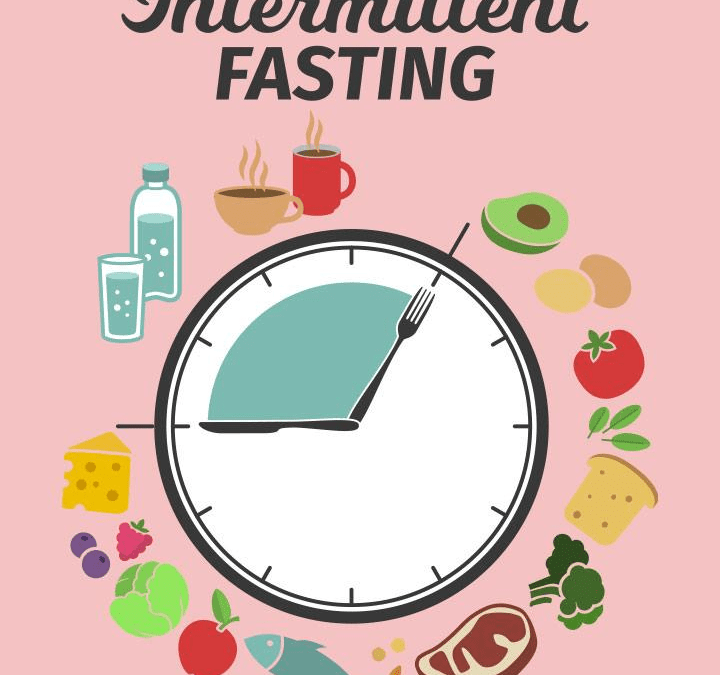Recently there has been a great deal of controversy over saturated fat intake, elevated LDL cholesterol and the statin drugs to treat high levels. Does a fatty diet or high LDL cholesterol increase one’s risk for a heart attack and stroke? Should an individual take a statin to lower cholesterol? What are the risks and benefits?
How Does Atherosclerosis (Plaque) Develop?
When born the arteries throughout the body are smooth like the inside of the cheek. Years of risk factors begin to take a toll and damage the interior lining. High blood pressure roughens up the lining much like sandpaper. Elevated glucose or sugar scratches the lining as it travels by.
Inflammation occurs when the body recognizes the damage and sends an army of white blood cells to heal it. The area becomes red and swollen much like any other wound. LDL cholesterol traveling through the blood becomes trapped within the damaged area, worsening the problem.
It’s well known that if you lower the amount of LDL traveling in the blood, less will become trapped within the damaged area. Healing occurs as a fibrous cap covers the area preventing a rupture that could cause a heart attack.
Understanding Cholesterol
Total cholesterol is made up of HDL or healthy cholesterol, LDL lousy cholesterol and VLDL very lousy cholesterol. It’s called lousy because it can get trapped in damaged arterial walls. The HDL helps the body eliminate the LDL. The VLDL cholesterol changes and is a harder predictor and generally not discussed by healthcare providers. Cholesterol is needed in hormone production.
Early studies looked at the total cholesterol number to predict outcomes and treatments. However, since the total number is made up of healthy and unhealthy cholesterol it was discarded. Today the focus is on the level of LDL cholesterol for treatment goals.
Multiple studies have shown that lowering LDL cholesterol reduces one’s risk for a heart attack and stroke when abnormal risk factors or insulin resistance is present. Even those opposed to statin treatment agree on this truth. However, criticism has continued regarding potential bias of the research when most funding may have come from the drug companies manufacturing the drug.
Insulin Resistance or Metabolic Syndrome
When an individual ingests food, it’s converted to glucose. The pancreas secretes insulin to use the glucose for energy. Sedentary, obese people will not be able to burn off the excess glucose which will be converted to stored fat. Over time the pancreas literally wears out, excess glucose remains in the blood scratching artery linings, and one may become a diabetic. Early warning signs are Insulin Resistance or the Metabolic Syndrome.
If an individual has 3 of the 5 signs, they are considered insulin resistant:
- Obesity or waist measurement over 35 inches for a woman and 40 inches for a man.
- Elevated fasting glucose >100
- High blood pressure >130/85
- Fasting triglycerides >150
- Low HDL <50 for a woman and <40 for a man
Saturated Fats
Since the 1980’s food manufactures have increased portion sizes. Today one restaurant entre is enough food to feed 3 people. Restaurateurs have shared that it costs about the same to make the larger portions but can be sold at a much higher profit.
Americans have lost the ability to judge an appropriate portion size. Almost everything has been super-sized along with American waistlines and a host of diseases. The trend continues to escalate with 81% of adults either 30% overweight, 42% obese or 9% severely obese.
Of children (2 to 19 years old) 41% are either 16% overweight, 19% obese or 6% severely obese.
Keto diets high in protein and saturated fats decrease appetite for weight loss but it is unknown what the impact will be on long term health. However, a new study by Dr. Matthew Budoff raised some interesting questions.
Budoff’s team examined 80 healthy adults matched by age, gender, race, normal blood pressure and nonsmoker. The average age was 55 and were followed for 4.7 years. Coronary artery calcium scores tests (previously discussed in February 2025 blog) and CT angiography were done to ascertain atherosclerosis buildup.
Comparisons were made between one group with an average LDL of 272 mg/dL on a Keto diet (high in saturated fats) while the other Miami Heart group’s average LDL was 123 mg/dL. Astonishingly, no significant difference was found between the 2 groups regarding the amount of plaque buildup.
Budoff’s team postulated that those eating an extremely high amount of saturated fats perhaps had larger more buoyant LDL cholesterol that simply were too big to get stuck even with such high LDL levels. The other group may have had smaller denser LDL that even with lower levels may have become lodged more easily. The size of the LDL particles was not measured. They cautioned that more research is needed since this was a small sample size.
Statins
Statins were introduced in the 1990’s. They work by blocking an enzyme the liver needs to make LDL cholesterol. The risks and benefits of any treatment should be ascertained. Rhabdomyolysis is a rare complication that causes severe pain, liver damage, kidney failure and death. More common side effects may include annoying muscle pain (5% of adults), digestive problems, elevated glucose, mental fuzziness, etc. Statins may interact with some common medications. However, most people tolerate them very well.
How are Cholesterol, Saturated Fats and Statins Connected?
Dr. Paul Saladino is a prominent outspoken critic of statin therapy to lower LDL cholesterol. He advocates for a diet very high in saturated fats, minimal fruits and vegetables and several hours of daily physical activity. Most would find this lifestyle difficult to maintain.
He argues that 86% to 90% of Americans have some form of insulin resistance which is the primary cause of heart disease or plaque build-up. LDL cholesterol may get stuck in the damaged areas, but it’s not the villain. He argues that if one does not have insulin resistance high levels of LDL cholesterol are not a health risk. However, he does indicate when statins are helpful:
If you’re insulin resistant and we lower your LDL cholesterol, your risk for heart disease is unequivocally lower. However, we didn’t treat the real cause which is insulin resistance or a metabolic disorder.
On A Personal Note:
Interestingly I met Dr. Budoff when he visited our heart institute in Chicago. He’s a pioneer and leader in the calcium score technology to detect hidden plaque that cause heart attacks and I have great respect for him. I found his study and Dr. Saladino’s comments fascinating.
The question remains, if you have an LDL cholesterol over 100 mg/dL what should you do? Should you take statins that your doctor is recommending? I highly recommend a non-contrast coronary artery calcium score test to be your tie breaker. It’s a simple test. If you don’t have any buildup, then you have time to work on your healthier lifestyle and keep an eye on it. However, if you have buildup, you probably need a statin to prevent circulating LDL cholesterol from getting lodged into those damaged areas.
Recently, a young 45-year-old man I know died from a sudden heart attack. He ignored his abnormal glucose levels, obesity and high cholesterol. If he had obtained a coronary artery calcium score test the dangerous plaque buildup would have been identified and treated.
Don’t ignore your numbers either and remember the more you do with your healthier lifestyle…the less medication you’ll need to correct problems.
God bless you as you move toward a heart healthy life.
Whether you eat or drink or whatever you do…
do it all for the glory of God (1 Corinthians 10:31).
References:
- Wang et al. “Compounding Benefits of Cholesterol Lowering Therapy for the Reduction of Major Cardiovascular Events: Systematic Review & Meta-analysis,” Circulation Cardiovascular Quality Outcomes (June 6, 2022). https://pubmed.ncbi.nlm.nih.gov/35430872/
“Metabolic Syndrome,” Cleveland Clinic (September 9, 2023). https://my.clevelandclinic.org/health/diseases/10783-metabolic-syndrome
“Overweight & Obesity Statistics,” National Institute of Diabetes, Digestive & Kidney Disease (September 2021). https://www.niddk.nih.gov/health-information/health-statistics/overweight-obesity
Budoff et al., “Carbohydrate Restriction-Induced Elevations in LDL Cholesterol & Atherosclerosis,” Journal of the American College of Cardiology, (August 28, 2024). https://pmc.ncbi.nlm.nih.gov/articles/PMC11450898/
- Johnson, “Heart Attack: Test to Determine Hidden Plaque Buildup,” A Nurse’s Voice (February 1, 2025.) https://anursesvoice.substack.com/publish/posts/detail/156138911?referrer=%2Fpublish%2Fposts
“Statins Side Effects: Weigh the Benefits & Risks,” Mayo Clinic (March 11,2025). https://www.mayoclinic.org/diseases-conditions/high-blood-cholesterol/in-depth/statin-side-effects/art-20046013
“Paul Saladino MD: The FDA Approved Poison You Eat Every Day” (SRS #179), The Shawn Ryan Show (March 5, 2025), https://www.youtube.com/results?search_query=paul+saladino+md+podcast .
I’m a Christian nurse who helps people navigate the murky waters of healthcare.
Author of Wake UP Call 911: It’s Time to Reduce your Risk for A Heart Attack and Stroke (2015) and Helping the Hurting: Nursing Ministry in the Body of Christ (2022).
You may visit my website for additional information: jenniejohnsonrn.com
All rights reserved 2025, Jennie E. Johnson, RN-BC, PhD
Paperback copies of both books for sale. Email me for details at: ask@jenniejohnsonrn.com.





Recent Comments